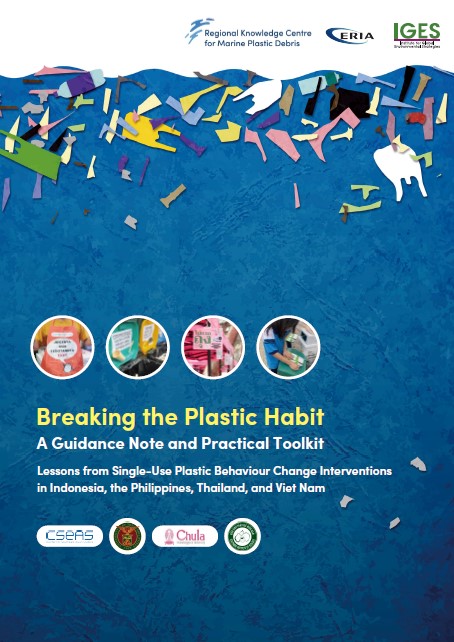Behavioural insight interventions to reduce plastic consumption were implemented in four countries in the Asia-Pacific: Indonesia, the Philippines, Thailand, and Viet Nam. Case studies on the four pilot projects provide a detailed account of the process of designing and evaluating interventions using a variety of behaviour change levers. Lessons and positive outcomes from these pioneering experiences form the foundation for scaling interventions with diverse partners in various settings.

Plastic pollution is heavily contributed to by countries in the Asia-Pacific region. Paradoxically, these countries, which are composed of archipelagos and long coastlines, are also some of the most vulnerable to plastic pollution. Building an understanding of what drives individual and collective decision-making mechanisms can help identify the root causes of plastic usage. Behavioural insight interventions, incorporating levers of social influences, emotional appeals, and choice architecture, can function as a complementary or precursor approach to traditional policy instruments such as regulations, economic incentives, and awareness campaigns to curb the consumption of single-use plastics.
This toolkit aims to assist practitioners developing projects to reduce single-use plastics through behavioural interventions.
Find our other CSEAS Indonesia’s publication: https://cseasindonesia.com/


